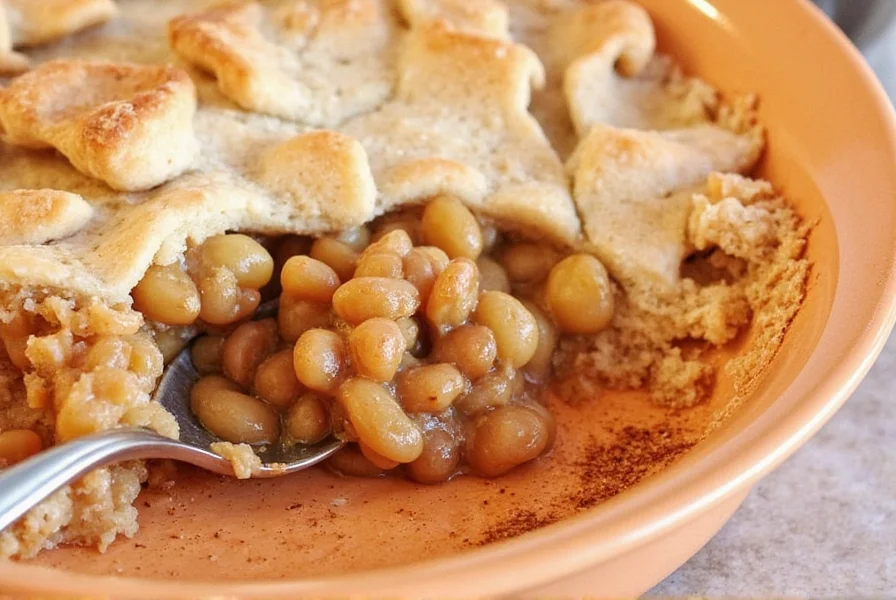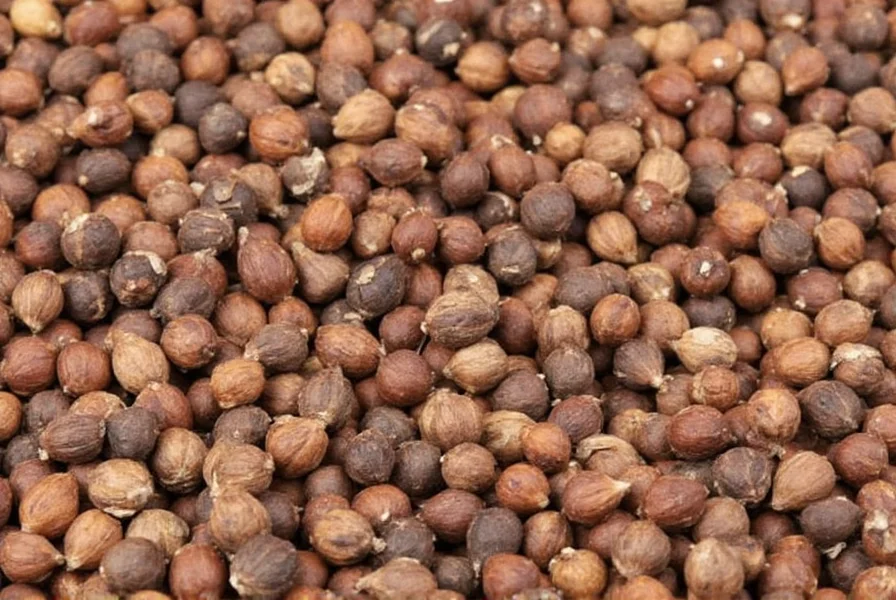Table of Contents
Introduction to Cloves Taste
Cloves have a complex flavor profile that combines sweet, spicy, and slightly bitter notes with a distinctive numbing sensation caused by eugenol, the main compound in cloves. Known for their intense flavor and aroma, cloves are one of the most distinctive spices in the world. How do they fit into different cuisines? And how can you use them effectively in your cooking? In this article, we'll dive deep into the world of cloves taste and uncover everything you need to know about this powerful spice.

What Is Clove?
Clove is a small, aromatic flower bud from the Syzygium aromaticum tree, which is native to the Maluku Islands in Indonesia. For centuries, cloves have been used not only as a spice but also for medicinal purposes. The buds are harvested when they're still unopened and then dried, turning them into the dark brown, nail-shaped spice we commonly find in grocery stores.
The name 'clove' comes from the Old French word *clou*, meaning 'nail,' due to its shape. It's no wonder that people often refer to cloves as 'spice nails.' Their strong, pungent scent makes them easy to identify, and their taste is just as unforgettable.
Taste Profile of Cloves
Cloves have a bold, complex flavor that's both sweet and spicy, with a hint of bitterness. Let's break down the taste profile of cloves:
- Sweetness: Cloves have a natural sweetness that balances out their heat. This sweetness is similar to cinnamon or nutmeg but more intense.
- Spiciness: The spiciness in cloves comes from a compound called eugenol. It gives cloves a sharp, hot, and almost burning sensation on the tongue—much stronger than chili peppers.
- Bitterness: Some people describe cloves as having a slight bitterness, especially when used in large amounts. This bitterness adds depth to the overall flavor.
- Aromatic: Cloves are extremely aromatic. Their scent is rich and warm, often described as earthy, woody, and slightly floral.
This unique combination of flavors makes cloves a versatile spice that can enhance both sweet and savory dishes. However, because of their intensity, it's important to use them wisely.
Cooking with Cloves
Cloves are used in a wide range of cuisines around the world. From Indian curries to Middle Eastern stews and even European desserts, cloves add a depth of flavor that's hard to replicate. Here are some popular ways to use cloves in cooking:
- Curries: Cloves are a staple in many Indian and South Asian curries, adding warmth and complexity to the dish.
- Stews and Braises: Cloves are often used in slow-cooked dishes such as beef or chicken stews, where their flavor has time to infuse into the meat and sauce.
- Baking: Cloves are a common ingredient in baked goods, especially in spiced cakes, cookies, and pies. They pair well with cinnamon, nutmeg, and ginger.
- Drinks: Cloves are used in mulled wine, chai, and other warm beverages to add a spicy kick.
When using cloves in recipes, it's important to remember that a little goes a long way. Overusing cloves can result in an overpowering or bitter taste. If you're unsure, start with a small amount and adjust to taste.
Frequently Asked Questions About Cloves Taste
What does cloves taste like?
Cloves have a complex flavor profile that combines sweet, spicy, and slightly bitter notes. They offer a warm, intense taste with a distinctive numbing sensation caused by eugenol, the main compound in cloves. The flavor is often described as aromatic, woody, and slightly floral with a lingering warmth.
Are cloves sweet or spicy?
Cloves are both sweet and spicy. They have a natural sweetness similar to cinnamon but more intense, balanced by a sharp spiciness from eugenol. This compound creates a warming sensation that can feel almost hot or burning when consumed in larger quantities, though it's chemically different from the capsaicin heat in chili peppers.
How strong is the taste of cloves?
Cloves have an extremely strong flavor that's potent even in small amounts. Their intensity comes from the high concentration of eugenol (70-90% of their essential oil). This is why recipes typically call for just 1-2 whole cloves or a small pinch of ground cloves. Too much can easily overpower a dish and create an unpleasant bitterness.
Can cloves be eaten raw?
While cloves can technically be eaten raw, it's not recommended to chew on them directly due to their intense flavor and high eugenol content, which can cause mouth irritation or numbness. In traditional medicine, a single clove is sometimes placed next to a painful tooth for temporary relief (due to eugenol's numbing properties), but they're primarily meant to be used as a cooking spice rather than consumed raw in quantity.
What foods pair well with cloves?
Cloves pair exceptionally well with other warm spices like cinnamon, nutmeg, allspice, and cardamom. They complement rich meats (especially pork, beef, and game), root vegetables, apple and pear-based dishes, citrus fruits, chocolate, and warm beverages. In sweet applications, they work beautifully with pumpkin, sweet potato, and in holiday baked goods like gingerbread and fruit cakes.
Why do cloves make your mouth numb?
Cloves contain eugenol, a natural chemical compound that has mild anesthetic properties. When you place a clove in your mouth, eugenol temporarily numbs the nerve endings, which is why cloves have been used traditionally for toothache relief. This numbing effect is part of what gives cloves their distinctive mouthfeel beyond just flavor.
Do cloves taste like cinnamon?
While both are warm spices often used in similar applications, cloves have a more intense, sharper flavor compared to cinnamon's sweeter, woodier profile. Cloves contain more eugenol which creates that distinctive numbing heat, whereas cinnamon's main compound is cinnamaldehyde. They complement each other well but have distinctly different flavor profiles - cloves are spicier and more pungent, while cinnamon is sweeter and more mellow.
How much cloves should I use in recipes?
Less is more with cloves. For most recipes, 2-4 whole cloves are sufficient for a dish serving 4-6 people. When using ground cloves, start with just 1/8 to 1/4 teaspoon and adjust carefully. Remember that ground cloves are more potent than whole ones since their essential oils are more readily released. If using whole cloves in liquid-based dishes, remove them after 20-30 minutes of cooking to prevent bitterness.
Buying Guide for Cloves
Types of Cloves
| Type | Description | Best For |
|---|---|---|
| Whole Cloves | Unbroken, intact buds that retain their flavor and aroma longer. | Use in slow-cooked dishes or when you want to remove them before serving. |
| Ground Cloves | Finely ground version of whole cloves, ideal for baking and spice blends. | Perfect for recipes that require a smooth texture, like spice mixes or baked goods. |
Both types have their advantages, so choose based on your recipe needs.
Key Features to Look For
- Color: High-quality cloves should be dark brown with a glossy finish.
- Aroma: They should have a strong, pleasant scent. Avoid any that smell musty or stale.
- Size and Shape: Whole cloves should be uniform in size and free from cracks or damage.
Some popular brands of cloves include:
- McCormick Ground Cloves: A trusted brand known for its consistent quality and strong flavor.
- Penzeys Whole Cloves: Offers premium whole cloves with a rich aroma and flavor.
- Herbamare Clove Seasoning: A blend of clove and other spices, perfect for seasoning meats or sauces.
These products are ideal for home cooks, professional chefs, and spice enthusiasts who want to elevate their dishes with authentic cloves taste.
Common Mistakes When Using Cloves
Even though cloves are powerful, they can be tricky to use correctly. Here are some common mistakes to avoid:
- Using too much: Cloves are very potent, so it's easy to overdo it. Start with a small amount and add gradually.
- Forgetting to remove whole cloves: If you use whole cloves in a stew or soup, don't forget to remove them before serving. Otherwise, they might become too bitter.
- Not storing properly: Cloves lose their potency quickly if not stored in an airtight container away from light and moisture.
- Mixing with incompatible spices: Cloves can overpower other spices, so it's important to balance them with milder flavors like cinnamon or cardamom.
By avoiding these mistakes, you'll get the most out of your cloves and enjoy the full depth of their taste.
Conclusion
Cloves taste is a unique and powerful flavor that can transform any dish. With its sweet, spicy, and slightly bitter profile, cloves bring warmth and depth to both sweet and savory recipes. Whether you're cooking a traditional curry, baking a spiced cake, or brewing a warm drink, cloves are a must-have in your spice rack.
Remember to use cloves wisely—start small, store them properly, and pair them with complementary flavors. With the right approach, you'll unlock the full potential of cloves taste and impress your guests with every bite.











 浙公网安备
33010002000092号
浙公网安备
33010002000092号 浙B2-20120091-4
浙B2-20120091-4